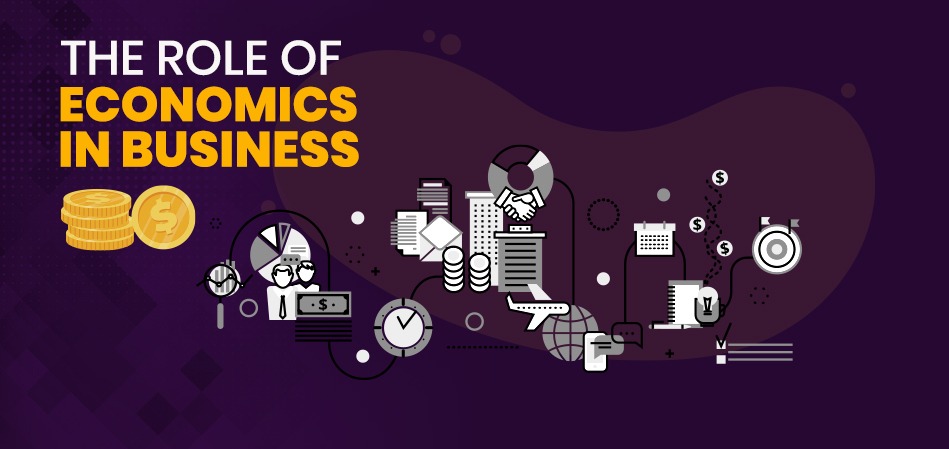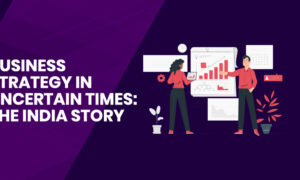
Abstract
This article focuses on how and why economics is an integral part of the management curriculum across the globe. It discusses some real life examples of how businesses are benefitted by the knowledge and expertise of business professionals with profound knowledge in economics in the recent past. The article also details a few latest concepts in economics, the application of which provides a number of solutions in business decision making in today’s world.
Economics in Action
Technology companies such as Google, Amazon, Microsoft, Airbnb, Facebook, Uber have large teams of economists. According to Athey and Luca (2019) in Harvard Business Review, technology sector is becoming a leader in this practice as here data available is plenty and experimentation is feasible. The field of economics, over decades, developed a toolkit for analysing empirical relationships, with the help of techniques to understand the nature of interrelations among variables. For instance, some very simple business questions might be like this: “does Uber Express Pool grow the full Uber user base, or simply draw in users from other Uber products?”, or “Should eBay advertise on Google, or does this simply syphon off people who would have come through organic search anyway?” [Athey nd Luca (2019)] Answering these questions involve investigating causal relationships which complements intuition with data. Such economic analyses do have a significant influence on the companies concerned, e.g. eBay’s analysis on advertising showed that inefficient advertising on Google was a mere wastage of millions of dollars.
Economics also focuses on the design of markets and incentives, and in the digital economy, this has found new applications. For example, economic research has dealt with the role of consumer search in shaping the design of auctions for digital advertising. In Microsoft, Susan Athey used these ideas to help improve the quality of Bing’s advertisements. The article also mentions, “When Michael Ostrovsky and Michael Schwartz noticed that Yahoo!’s reserve prices were lower than theory would suggest is the most profitable, they ran an experiment to tweak the reserve prices — and helped the company increase profit by millions of dollars”. National Association of Business Economists organised a conference that highlighted the practical relevance of the works in business economics in technology companies and the companies that are now bringing an economics mindset into their decision-making.
The Role of Economics in Business Decisions
Business decisions are often made under uncertainty and there comes the role of prediction and forecasting. The theory of business economics, coupled with quantitative techniques specific to economic data (called Econometrics) provide valuable insights about the decisions to be made by producing accurate forecasts of key business variables like demand, price, sales, manpower, inventories etc. It shows, based on objective analysis, what might be the optimal strategy given the objectives and the constraints faced by the management.
Thus, the role of economics in business may be categorized in three functions. First, the manager with exposure to economics may identify various problems hindering the growth of the organization, explain why this is happening and analyse the possible effects in the short and long run on the functioning of the organisation. S/he is capable of suggesting an alternative action plan which is rational and implementable. Second, business economics, based on quantitative analysis, can provide an objective basis for decision/policy making and advance planning. Third, armed with the expertise on quantitative techniques along with the knowledge of the theory of economics, managers with thorough exposure to economics develops an acumen for analysis. It helps one to analyze various problems related to any other domain apart from economic issues in business, be it sales promotion, volume of investment, nature and extent of competition and analysing the competitors, or financial positions, labour relation, Government policies. It takes into account several factors that might affect the macro business environment and the repercussion on the industry/ sector, and also the firm. Therefore, the contribution of the business economics in decision making may be summarized in the following functions:
- Minimising risk and uncertainty
- Profit Planning and Control
- Demand and Sales Forecasting
- Measuring Efficiency
- Analysing effects of government policies
Contributions of Concepts in Business Economics
In order to understand how businesses run, one has to be aware of the different functions and processes. On the one end, businesses have to serve customers and on the other, they have to look after the production of the commodities/ services so that they remain profitable. In this entire process, reaching customers is one of the most important parts and that relates to sales and marketing. Arranging for the production process at the affordable cost to keep the business profitable, the role of operations management comes in. Managing the operations with people is another important aspect and there comes the role of human resources management. In this entire process, mobilization of finance to arrange for these activities and utilizing the resources appropriately are related to the field of finance. Then where is Economics in this process? Where does it fit in? Why should a manager study economics at all?
Consider the phrase “they remain profitable”. Let’s start with this to understand what role Economics plays in making business decisions. How do they remain profitable? The theory of the firm in Economics provides a concrete answer to this by incorporating the state of technology and the cost of other inputs of production – it guides one to understand how the businesses can minimize cost. Not only that, business economics theories also throw light on how different pricing mechanisms are used by businesses to sustain their profits by understanding their consumers. Sounds weird? Let me elaborate. You go to an amusement park and see there are different options for entry, e.g. you may pay the entry fee and then on entering you choose the rides and pay separately. You may also pay for 6 rides along with the entry fee before entering. Have you ever thought why there are two schemes from which you may choose one? The second one for the ride- lovers while the first one is for not-so-much-ride-lovers! The park authorities don’t know which type of customer you are and hence the two schemes. If they would have charged the same price to both the types they would have ended up with lower profits! This is just a pricing mechanism- to charge different prices – to increase profits and business economics theory can tell you to which customer the amusement park should charge higher!
Consider another instance. Mr. Dixit was wondering how he is losing revenue despite being the only movie hall in the town without another in the neighbourhood. He was thinking of raising the price of the tickets. But the manager, who studied Economics in MBA, understands the nature of demand and consumers’ preferences very well and depending on his analysis he may advise whether it would be prudent to raise price or not.
Business Applications of Select Concepts
Auction
In economics, auction theory has huge real life applications. Apart from designing the complicated auctions in sectors like airlines, telecommunications etc., economists have played central roles in making auctions famous and successful. For example, most of Google’s revenue is generated by an auction-based system that sells advertisements; the system was developed by two engineers and validated by its chief economist, Hal Varian. Priceline, an online platform for travel bookings, introduced an economic concept called “conditional price offer,” to make it mandatory for travellers to pay the prices they bid if the airlines and hoteliers on Priceline’s portal accepted the offers. This was developed by the company’s founder, Jay Walker, who studied economics at undergraduate level. With this, the consumers (travellers) put more serious thought before they offered the price than just naming the price without purchase obligation [Litan (2014)].
Optimization
Economics uses tools related to optimization in various contexts. According to Litan (2014), firms in the sectors of transportation and communications often have to face complex optimization problems. Mathematicians and economists are capable to solve these problems through linear and also non-linear programming methods. As a consequence, the firms and consumers benefit greatly from lower costs and prices.
Matching Theory
Matching theory or market design is a relatively new strand of literature in Economics. Alvin Roth used this to design the national medical resident assignment program and kidney donor exchanges [Litan (2014)]. On online dating platform, cupid.com, their economist limited, for women, the number of requests for dates they can receive from men per month. This made the men much more serious and selective, and probability of response is likely to improve.
Future Prospects
Not only the technology companies as detailed earlier, companies in other sectors as well have realised the importance of having people with enough exposures to economics. Banking and financial sector, NGOs, credit rating, healthcare and many other sectors like energy, retail, insurance, stock markets that need the expertise of critical thinking and analysis possessed by MBAs with in-depth knowledge of economics are offering them more executive roles. Apart from that, other prospective employers include government enterprises, public sector organisations, investment firms, business journals and newspapers. A management graduate who studies economics in depth is suitable for a role as pricing analyst, market research analyst, in the career of business forecasting, international business, management consulting etc. Along with business analytics and digital marketing, International management or Global Management or International Business is another upcoming area of specialisation mostly based on economics and strategy.
References : Athey, Susan and Luca, Michael (2019), Why Tech Companies Hire So Many Economists, Harvard Business Review, February 12.
Litan, Robert (2014), What an Economist Brings to a Business Strategy, Harvard Business Review, September 29.
Written By : Prof. Paramita Mukherjee

Designation : Professor – Economics
An alumnus of Presidency College, Kolkata, she has completed MS in Quantitative Economics from Indian Statistical Institute and Ph.D. from Jadavpur University. She has twenty-three years of experience in the industry, research and academics, with stints at AC Nielsen (formerly ORG MARG), ICRA and renowned business schools. She has handled responsibilities in academic administration as Dean (Academics) for five years and as Dean (Research), Area Chair (Economics) for several years in IMI and similar capacities in other institutions earlier.










